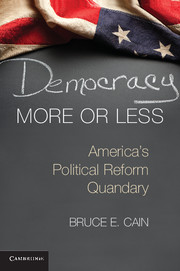Book contents
3 - How Much Transparency?
Published online by Cambridge University Press: 05 December 2014
Summary
US politics and government have generally become much more transparent over time. This trend encompasses not only greater disclosure of most government actions and policies, but also an increasing demand for more financial and personal information about public officials, spanning the full cycle from running or applying for public office to postservice activities. Even as formal requirements have become more numerous and complex, informal expectations have increased also. Presidential and congressional candidates, for instance, are now routinely pressured to reveal much more than the law demands about their financial assets, business dealings, and personal lives. Government agencies must comply with stricter freedom of information laws and provide more information than ever on their websites. But at what point does maximizing the democratic value of transparency undercut government effectiveness? This is the too-much-democracy question.
At the same time, some aspects of American government may not be sufficiently transparent: in other words, it is possible that too much accountability has been traded away for the sake of effectiveness. This question arises with national security and policing matters. With the challenges of modern international terrorism and the government’s increasingly sophisticated technical capacity to collect phone, social media, and other electronic information, Americans face the vexing problem of holding government espionage activities accountable without undermining their own safety. Clearly, full public transparency is not feasible since spying operations must be secret in order to be effective, but an unmonitored agency shrouded in secrecy is an open invitation to abuse. The American solution to this problem is a mix of checks and balances: inspectors general, congressional oversight, and a special judicial body (i.e., the Foreign Intelligence Surveillance Act – FISA – court). But the revelations following Edward Snowden’s release of NSA documents suggest that those may not be working very well.
- Type
- Chapter
- Information
- Democracy More or LessAmerica's Political Reform Quandary, pp. 41 - 67Publisher: Cambridge University PressPrint publication year: 2014



